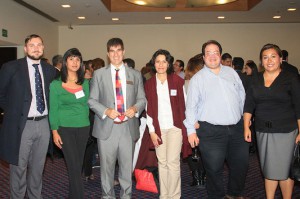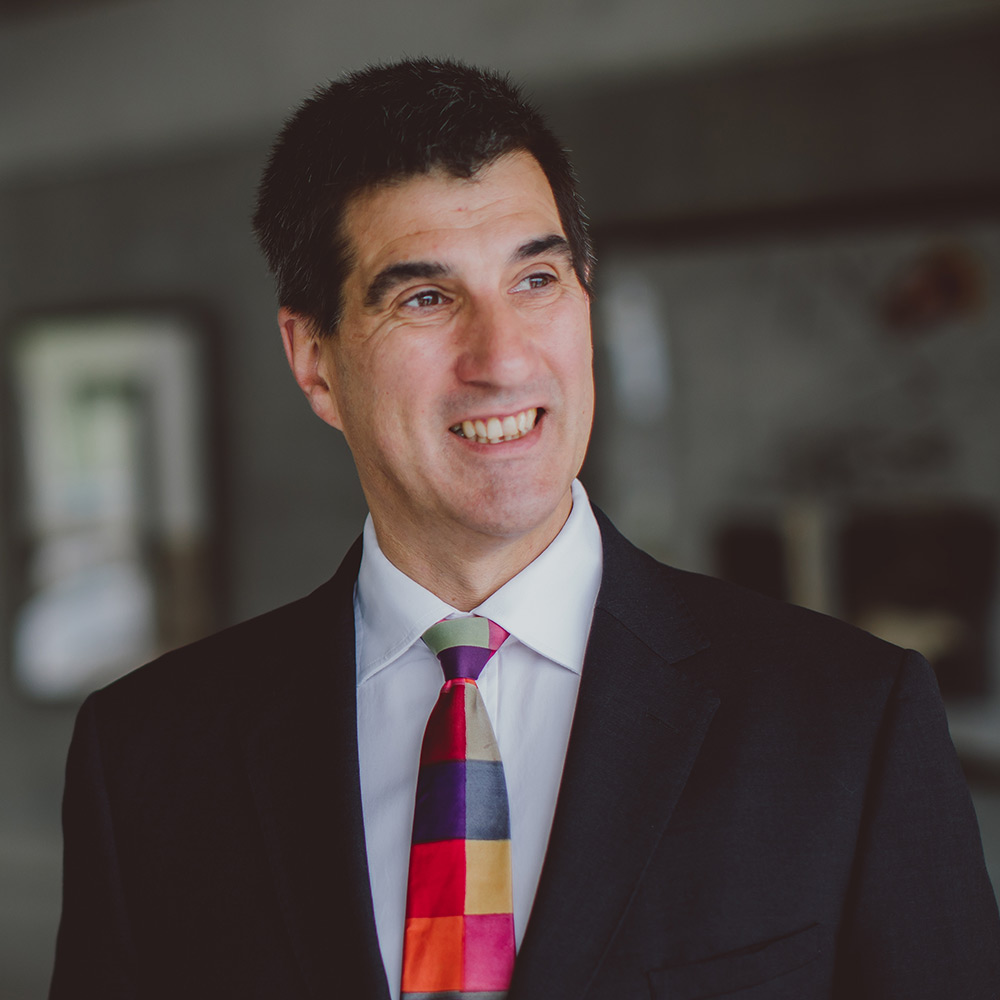Our Vice-Chancellor, Professor Anthony Forster, recently returned from a trip to Mexico. Here he tells us how international travel helps strengthen our global links and advance our University’s interests across the world.

Our Vice-Chancellor met with alumni, donors, policy makers and others to raise awareness of Essex and our mission
On international trips we have developed an ‘advancement’ approach, where we combine previously separate activities in order to better promote the interests and reputation of the University. ‘Advancement’ involves us engaging with University’s alumni, donors, government policy makers and the media to increase support for, and awareness of, the mission of the University. Increasingly we also meet university partners to open up, or consolidate, partnerships and try to meet student applicants who have applied to Essex to help lend support to the conversion activities. Unsurprisingly the visits are very busy, but I would like to think all the more productive because of this.
A 20 year relationship with Mexico
The University has invested at grass roots level in Mexico for over 20 years and built up a superb profile through personal and institutional contacts. Few universities have the profile of Essex and we are thought of highly, especially for rigorous social science research with impact, human rights and computer science and electronic engineering.
The visit to Mexico was based around an excellent programme of visits to universities and institutes including Tec de Monterrey (ITESM), Centre for Research and Teaching in Economics (CIDE) and the Latin American Faculty of Social Sciences (FLACSO), a meeting with the Mexican Institutes of Technology, meetings with potential donors, members of our alumni group, an evening reception for the alumni club, visits to funders National Council for Science and Technology (CONACYT) and British Council, and to the Ambassador, as well as two well attended research presentations from Professor Todd Landman. The highlight of the visit was undoubtedly the alumni reception to thank a fantastic group of friends and supporters of the University. A sense of the visit can be gained from the Storify page and twitter #EssexinMexico.
Exciting opportunities
Mexico has huge potential because it sits at the intersection between three very exciting opportunities for us:
• A country with good possibilities for student recruitment at the Undergraduate level and very good possibilities at the Postgraduate Taught and Postgraduate Research levels. A bachelors degree takes five years and is expensive, which makes a UK university education affordable and a tremendous opportunity for Essex. Joint degrees and dual degrees are especially attractive and we now have a model of a dual degree with Tec de Monterrey, with 30+ students coming to Essex each year. This is ais a first in Mexico and an approach which remains unique.
• We have our most active group of alumni in Mexico, with over 800 graduates making it the second largest UK alumni group in Mexico. Many of are our alumni are in positions of influence in government, civil society, and academia. For example Rodolfo Neri Vela, the second man from a Latin American country to go into space; Julio Portales famous restauranter of the award-winning restaurant Paxia; Abraham Zamora, Director General of Banobras, which is the state owned Mexican development bank; the new governor of Colima State Jose Ignacio Peralta Sánchez; and Honorary Graduate Ignacio Durán Loera, former Minister of Culture at the Mexican Embassy in London.
• We have excellent possibilities for research through links with the very best university research institutes, CIDE in social sciences and FLACSO for human rights who are keen to develop collaborative research projects and further links.
Follow up
We have already sketched out a wide range of follow-up actions from the visit, including:
- Setting up a Regional Interest Group (RIG) to bring together academic staff and professional services with an interest in Mexico. Monica Illsley is the key contact if you are interested in joining this group, or following up any of the actions below.
- Summer Schools. We signed a Memorandum of Understanding with CIDE and FLACSO and in this context discussed running two summer schools in Mexico in the summer of 2016, one in CIDE on quantitative and qualitative methods and the other on human rights. The profile of CIDE and FLACSO suggest these could have a catchment area that includes the whole of Latin America.
- Research projects. There is significant ring- fenced UK government Newton funding for research exchanges and research. For example funding is available for research projects up to a million pounds and tremendous good will toward Essex in the British Council who support the Newton Fund. With CIDE and FLACSO we will develop a proposal in the general area of human rights, challenges of governance and big data using new technologies.
- Education links. We are exploring where we can develop further dual degrees based on our model with Tec de Monterrey.
- Follow-up visits. I am delighted that Professor Maria Fasli and Professor Heather Laurie will be visiting Mexico in November 2015 to sustain momentum and further consolidate links.
The visit was very successful if a little exhausting. It was a pleasure to feel so welcome and for us to identify so many opportunities that will support the University in our mission of excellence in education and research. If you are interested in following anything up from this blog, please do not hesitate to contact me or Monica Illsley.
Anthony Forster
1 July 2015
You can read more about the Vice-Chancellor’s trip to Mexico on our news page and see photographs from the trip on flickr.

